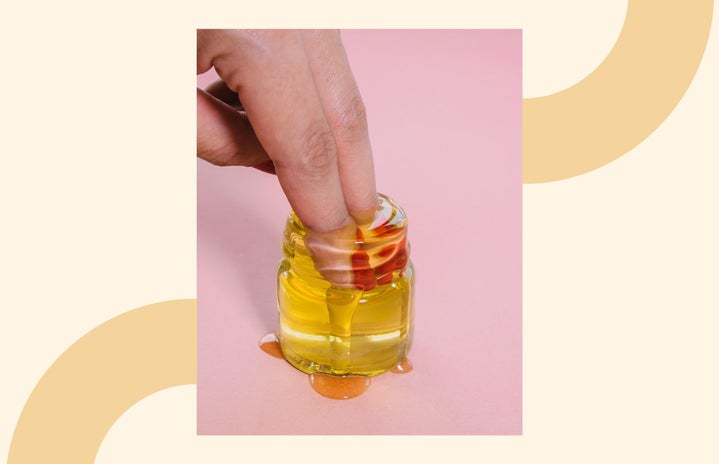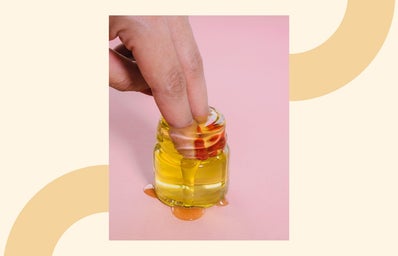College is all fun and games until you find yourself with your third UTI
The college years are when many young women start to seriously explore their sexuality, which is a great thing! However, this exploration can lead to confusing, and sometimes painful side effects, such as getting a yeast infection after having sex. Understanding how to care for your reproductive health is something that countless women struggle with and something that most of us, including myself, were never taught in school. From dealing with period cramps and avoiding yeast infections, to finding a birth control method that works and knowing what to expect at your first gynecologist visit, women’s health is complex and under-discussed. This topic is especially important now, in a time when Roe vs. Wade has just been overturned and access to abortion is up in the air. All this got me thinking: “wow, I wish there was some kind of basic vaginal health guide for college women.” So, I wrote one! Welcome to my college girl’s guide to a happy vagina.
Discharge 101
Despite what you may have heard, vaginal discharge is normal, and it typically varies throughout your cycle. Vaginal discharge that looks like cottage cheese or that smells strongly of rotten fish, however, is not. So, what exactly makes discharge normal versus something to be concerned about?
As Cosmopolitan writes in their article “7 Things Your Vaginal Discharge Is Trying to Tell You,” normal discharge can range from being clear and sticky, to white and creamy or to brown and bloody. Brown discharge is known as spotting, and can occur before, in place of or after your period. It is usually normal and occurs frequently in some people, while others, may experience it for the first time when they start birth control. The clear and sticky discharge typically occurs before and during ovulation because the consistency is ideal for conception, whereas it often becomes thicker and cloudier after ovulation. The only time in which thick, white discharge is abnormal is when it has a cottage cheese-like texture and is accompanied by itching or burning. This is a classic sign that you have a yeast infection but could also be indicative of other issues such as an STD or STI. It’s also not normal for your discharge to be yellow, green, foamy or accompanied by a strong odor, as all of these are signs of infection.
Yeast infections
So, your discharge is abnormal, it looks like cottage cheese, and it burns. There’s a pretty good chance you have a yeast infection. If this is the first time you’ve ever experienced these symptoms, it’s never a bad idea to go see a doctor. However, if you’re pretty sure it is a yeast infection, you can buy an over-the-counter antifungal; a common brand of antifungals is Monistat. Fair warning, this treatment is not a pleasant experience, and from personal knowledge, it may burn like the fiery pits of h*ll. The other option is a single pill called fluconazole, which is an easy and painless way to get rid of a yeast infection. The only problem is that it usually requires a prescription.
One life hack that I learned from my mom, is that anytime you’re prescribed an antibiotic go ahead and ask your doctor for a fluconazole pill because, if you’re anything like me, there’s a good chance the antibiotic will cause you to develop a yeast infection. Taking an antibiotic is a frequent cause of yeast infections, as it kills off all the bad bacteria, but can also end up killing off the good bacteria that helps keep your vagina healthy. If you don’t end up getting a yeast infection from the antibiotic, you’ll have a fluconazole pill saved up for a rainy day and won’t have to suffer through the burning agony that comes with over-the-counter antifungals.
UTIs
Unlike yeast infections, there are no over-the-counter treatments available for a UTI, meaning you have no choice but to see a doctor. Signs of a UTI according to the Mayo Clinic include “A strong urge to urinate that doesn’t go away, a burning feeling when urinating, urine that looks cloudy,” blood in the urine and more. There are some over-the-counter urinary pain relief pills, a common brand is AZO, which I’ve been told work wonders. However, those pills are just for pain relief, and you will need a prescription antibiotic to get rid of your UTI. Sorry to break it to you, but as my own OBGYN told me, “no amount of cranberry juice is going to cure your UTI.” Prevention
Now that we’ve broken down two of the most common infections, it’s time to talk about how to prevent them. Here are five tips for keeping your vulva, vagina and related areas happy and healthy.
1. Avoid scents
Whether it be scented period products, scented vaginal washes or flavored lube: avoid it at all costs! Using scented products throws off your vagina’s natural pH balance and is a recipe for something nasty.
2. Say No to Spermicide
While it may seem tempting at first, spermicide is horrible when it comes to vaginal health. Just like with scents, the chemicals in spermicide are harsh irritants and will easily throw off your vagina’s pH balance.
3. Pee After Sex
There’s a good chance you’ve heard this one before, but I cannot stress its importance enough! During sex, bacteria can work its way up into your urethra. Peeing after sex helps to flush out these bacteria early on and prevent you from developing a UTI.
4. Let Her Breathe
Frequently wearing tight spandex, underwear or shorts can create a lot of moisture, which is not great for your vagina! Wearing cotton underwear and looser clothes allows your vagina to breathe. This is not to say that you should entirely ditch your favorite spandex shorts, but just be mindful that you should give your vagina time to breathe.
5. Don’t Be Afraid of your Gyno
We all know that turning 21 means one thing, the dreaded first pap smear (that’s totally what you thought of, right?) While visiting the gynecologist can be stressful, it really is an important part of taking care of your vaginal health. Your OBGYN can help you with any questions or concerns you may have and provide you with all the necessary resources to make sure you and your vagina stay healthy.
It can be hard to know where to start when it comes to your vaginal health, especially since much of this information is not taught in schools. Regardless, I strongly encourage all my fellow college girls to put time into maintaining your vaginal health. Understanding what your vagina needs is crucial to your overall health. While there are still so many things I haven’t covered, I hope this article can serve as a starting point to understanding how to care for your vagina.

